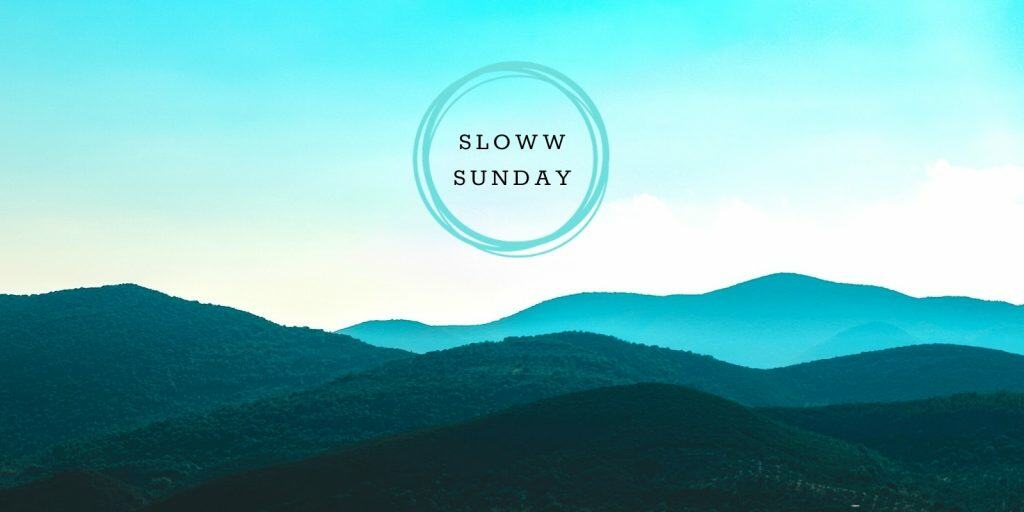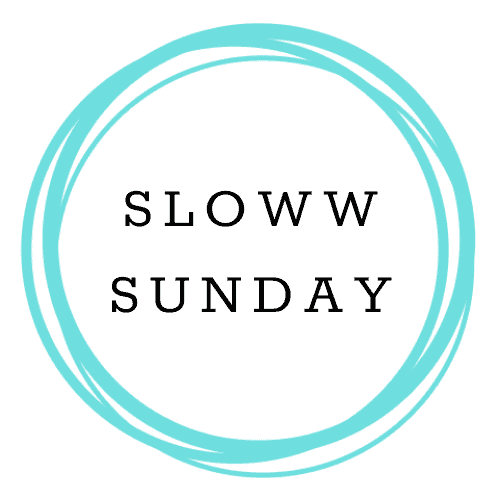Sign up to get the Sloww Sunday newsletter via email for free:👇

Sloww Sunday Newsletter 074 (August 29, 2021) — Who Are We, What is Wisdom, Century of the Self, & More
Hi friends,
Here’s the latest from Sloww along with the most interesting things I discovered last week. To respect your time and attention, every newsletter can be read in under 5 minutes. If you enjoy it, please take 5 seconds to share it with some friends or family. Happy learning and living!
New News
🧠 My first online course is in the works and aiming to launch in the next couple months! Over the last few years, I’ve slowly developed a better understanding of how my own mind works. I had an epiphany when I realized that there are multiple kinds of minds, and mine seems to operate most naturally as a “synthesizing mind.” This course will teach you everything I’ve learned about the art of synthesis, deconstruct how I synthesize for Sloww and in my daily life, and explore how you can cultivate your own synthesizing mind in a world where sensemaking is needed now more than ever.
“In the twenty-first century, the most important kind of mind will be the synthesizing mind.” — Murray Gell-Mann (Nobel Laureate in Physics)
💬 Sloww will also be launching an online community as part of the course launch! It will be available for course students and Premium members. If you’ve wanted to connect with other like-minded, like-principled, and like-spirited humans, it will soon be a reality. I’m currently researching software/platforms like Circle, Mighty Networks, Slack, Discord—and even considering an old-school forum. Any favorites or other thoughts on online communities? Please respond to this email and let me know.
“The unique individuality of each human being is given value through its relationship with an overarching whole; namely, a human community.” — Viktor Frankl
Sloww Stuff
🆕 7 Intellectual YouTube Lecture Series to Pursue Lifelong Learning Online for Free
I’ve been passively saving some of the best YouTube lecture series over the last few years, and I finally decided to actively organize them in one place. The list currently includes lecture series from Jordan B. Peterson, Yuval Noah Harari, Robert Sapolsky, Richard Hamming, John Vervaeke, and more. I’d love to keep adding to this list, so please let me know if I missed any of your favorites.
I’m currently reading the ~600-page book The Master and His Emissary by Iain McGilchrist. The second chapter alone is an absolute beast with 500+ footnotes highlighting the differences between the left brain (“the emissary”) and the right brain (“the master”). So far, I’ve captured 95%+ of all the left brain and right brain hemisphere mentions through chapter 3 of the book. As I read more of the book, I’ll update this post and continue to further organize and distill it all.
Modern Knowledge
🧠 Who Are We? — Iain McGilchrist
(78 mins | Vimeo)
This video is a bit of a recap of The Master and His Emissary along with a preview of his upcoming book The Matter With Things. McGilchrist thinks we’re in the midst of a “devitalization”—losing all the things that really make us human beings and feel alive. He hopes his work is an example of how we can use what we know from neurology, what we know from philosophy, and what we know from physics to arrive at a coherent vision of reality and understanding of ourselves.
For more McGilchrist, check out Sloww Sunday issues #061 and #051.
Highlights:
- Who are we? “Who we are is changing fast and has been changing for a couple hundred years because of the way we attend to the world nowadays … We play a part in the coming into being of whatever comes into being … We play a part in becoming whoever we are … The answer to the question ‘Who are we?’ is not a settled question. It’s a question that we decide in everything that we do, in everything that we think, in everything that we believe in our hearts because that is where the true being is—not in the superficial systems/actions, the doings/gettings, that we think characterize us.”
- Science and reason plus intuition and imagination: “Science is not the enemy of intuition or imagination, but needs and requires intuition and imagination … Reason is a matter of bringing together the capacity to be logical with the experience of a life well-lived—to bring it together with wisdom formed on the basis of intuition.”
- Embracing opposites: “Opposites very often have to be present together, and if you deny one of them, you bring about the thing that you most feared … When you’re a philosopher, or anyone who thinks deeply about life, we find that things are paradoxical … Opposites tend to coincide much more than they are at the opposite ends of a single linear pole.”
“When we attend to the world in a certain way, we change what it is that we find—but it also changes who we are … Attention we pay not only changes the world, but changes we who do the attending. It’s a reverberative relationship—as all true relationships in the cosmos are—as we find in physics and spiritual and philosophical senses.” — Iain McGilchrist
Timeless Wisdom
🤔 What is Wisdom? — John Vervaeke
(11 mins | YouTube)
Every week, this section of the newsletter is dedicated to timeless wisdom. But, what exactly is wisdom? Surprisingly, there aren’t a ton of great videos offering definitions and descriptions. I watched quite a few and felt like this one was the one worth sharing. If you’re familiar with John Vervaeke’s 50-part YouTube series Awakening from the Meaning Crisis, episodes 40-45 dive deep into wisdom.
“Wisdom involves some transformation of our cognition that affords an improvement of our lives. It helps to reduce foolishness (frees us from ways our cognition is working against itself) and helps to afford flourishing (frees us to improve ways our cognition is working with itself).” — John Vervaeke
Mind Expanding
🤯 The Century of The Self
(4 hrs | YouTube)
Last week I mentioned Edward Bernays, a pioneer in propaganda, persuasion, and PR—and nephew of Sigmund Freud. I went a bit deeper down the Bernays rabbit hole and ended up watching this 2002 award-winning BBC documentary from filmmaker Adam Curtis. It’s essentially an exploration of the intersection of psychoanalysis, marketing, and politics over the course of the 20th century. Watch it if you’ve ever wondered how we collectively became consumers obsessed with materialism. I fully believe that understanding advertising is itself an antidote to advertising.
“To many in politics and business, the triumph of the self is the ultimate expression of democracy, where power has finally moved to the people. Certainly, the people may feel they are in charge, but are they really? The Century of the Self tells the untold and sometimes controversial story of the growth of the mass-consumer society. How was the all-consuming self created, by whom, and in whose interests?” — Adam Curtis
💭 Deep Quote
“Happiness is not the same as joy. Although both happiness and joy are positive emotions, they are very different psychologically and neuroanatomically. As many have observed, joy is cultivated from within. It comes when we make peace with who we are, why we are, and how we are, whereas happiness is contingent on external things, people, places, thoughts, and events.”
— Jill Bolte Taylor (“Whole Brain Living”)
Sharing: If you enjoyed this issue, please help grow Sloww by sending this post to some friends or family who could benefit from it or by sharing it on social media. Anyone can subscribe for free here.
Support: Sloww is a one-human labor of love. If you’re interested in supporting my work, there are several financial and non-financial ways to support.
Feedback: Have something you want to say, or just want to say hi? It’s always much appreciated. Just send me an email or reach out socially.
Have a joyful week!
Kyle Kowalski
Synthesizer & Solopreneur, Sloww






Leave a Reply